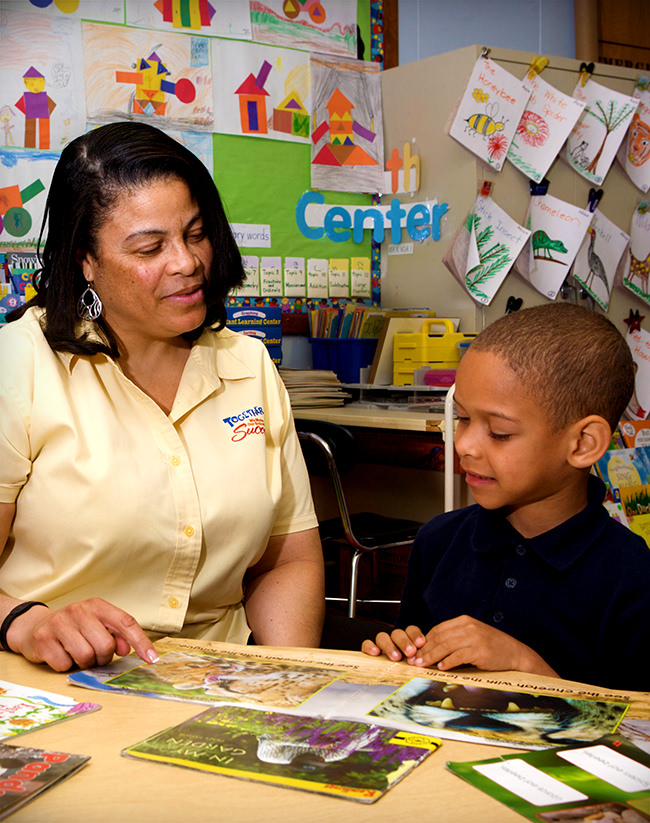Reading with individual students can seem like a luxury with all the demands placed upon your time so how can you ensure that your one-on-one time is used effectively? Here’s some useful tips for making sure that the reading conversations you have with your students – especially your struggling readers – are powerful ones.
Listening to Students Read Aloud
Listening to students read aloud portions from their guided reading books or their independent reading selections can be a useful tool for gathering information about their fluency, word recognition and decoding skills.
When listening to students read, make sure you do not interrupt them in the middle of a sentence, even when they make mistakes. Instead give them “wait-time” to see if they return to the error and self-correct. You’d be amazed at how often children realize that something didn’t quite make sense in their books when given time to think and even read on. If they do return to the error and correct it, you have learned something new about their reading strengths: they know how to self-monitor! If they don’t go back to self-correct, you’ve also learned something: you need to teach those children that reading should make sense. And when it doesn’t make sense? They need to go back and figure out where they lost meaning.
Remember, you don’t want your students to rely on you to help them when they get stuck. You already know how to read. Instead you want them to be problem solvers and to use the strategies they know, and the strategies you are teaching them, to figure out unknown words.
Talking to Students About Their Books
Comprehension is the ultimate goal of reading so how can we make sure our students understand their texts? One important way to do this is by talking to them about their books. Ask them questions that require that they recall and use information from the text – those “who, what and where” questions. But also ask higher level thinking questions which are equally important. Higher level thinking questions challenge students to think more deeply. They help students connect new information to what they already know and to think critically. Aim for a balanced approach.
Useful higher order thinking questions may include:
- What might happen if…
- What did the author mean when (s)he wrote…
- What would you suggest…
- What is the difference between…
- Why is this significant?
Between listening to your students read to you and talking to them about their books, you will leave these individual conferences with a renewed understanding of your students’ strengths and needs. And with your guidance, your students will blossom.

